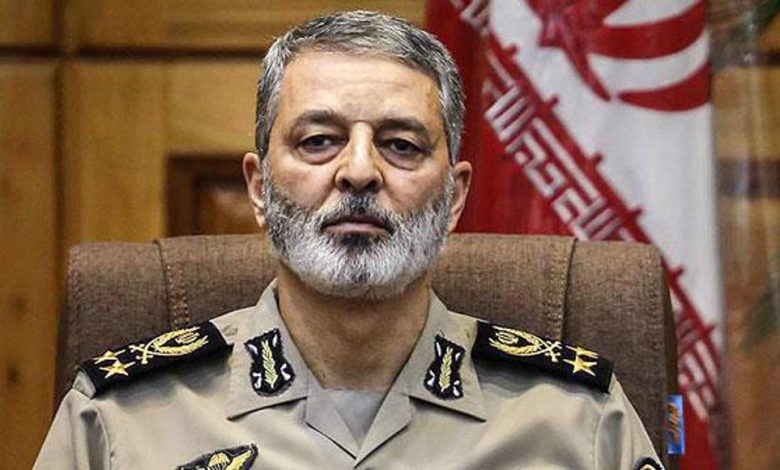They may want to commit suicide for fear of death: Army chief on ‘israeli’ ‘Iran strike plans’
Iran’s Army commander says the Israeli military’s claims that it had sped up alleged Iran strike plans are serving as a death march for the regime’s rulers.

“It looks like the heads of the Zionist regime have sensed the speed with which their lives are waning,” Chief Commander of Iran’s Army, Major General Abdolrahim Mousavi said on Wednesday.
“Maybe, they want to commit suicide for fear of death,” he added.
The comments came a day after an Israeli official, Aviv Kohavi, alleged in an interview that the regime had “greatly accelerated” preparations for action against Iran’s nuclear energy program. He also purported that the regime had “greatly diminished Iran’s presence” to the north of the occupied territories.
Mousavi continued, “They (the Zionists) have many areas of vulnerability,” adding, “They have so far experienced many heavy defeats.”
By suggesting suicidal tendencies on the part of the regime’s officials, the commander was echoing repeated remarks by the Iranian military top brass and other senior figures that the regime must be contemplating its own demise if it entertained even the thought of attacking the Islamic Republic.
Tel Aviv’s claim of being able to reduce the Iranian presence in the region also comes while the Islamic Republic has been maintaining a robust military advisory campaign throughout the region, especially in Iraq and Syria.
The campaign has been successfully seeking to invigorate the Arab countries and others against Takfiri terrorists. Iranian officials have not only dismissed downsizing the campaign as a result of constant military strikes by the Israeli regime and its allies, but also they have been reporting a constant increase in the Islamic Republic’s regional influence and activities.







